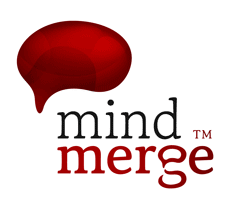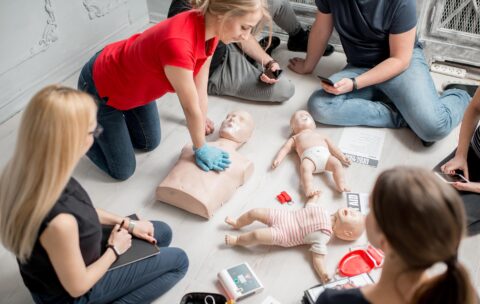Organizational Skills Workshop
What you'll learn
Examine current habits and routines that are not organized
Learn to prioritize your time schedule and daily tasks
Determine ways of storing information and supplies
Learn to organize personal and work space
Learn to resist procrastination
Make plans to stay organized in the future
Meeting Management Workshop
What you'll learn
Planning and Preparing
Identifying the Participants
How to choose the time and place
How to create the agenda
How to set up the meeting space
How to incorporate your electronic options
Meeting Roles and Responsibilities
Use an agenda
Chairing a Meeting
How to deal with disruptions
How to professionally deal with personality conflicts
How to take minutes
How to make the most of your meeting using games, activities and prizes
Executive and Personal Assistants Workshop
What you'll learn
Adapt to the needs and styles of management
Communicate through written, verbal, and nonverbal methods
Improve time management skills
Manage meetings effectively
Act as a gatekeeper
Use the tools of the trade effectively
Collaborative Business Writing Workshop
What you'll learn
Define collaborative business writing
Know different types of collaborative writing
Know how to collaborate with team members
Learn methods of handling conflict in writing
Build collaborative writing teams
Business Writing Workshop
What you'll learn
Gain better awareness of common spelling and grammar issues in business writing.
Review basic concepts in sentence and paragraph construction.
Know the basic structure of agendas, email messages, business letters, business proposals, and business reports.
Know tips and techniques to use when deciding the most appropriate format to use for agendas, email messages, business letters, business proposals, and business reports.
Know tips and techniques in writing agendas, email messages, business letters, business proposals, and business reports.
Gain an overview of Request for Proposals, Projections, Executive Summaries, and Business Cases.
Define proofreading and understand techniques in improving proofreading skills.
Define peer review and list ways peer review can help improve business writing skills.
List guidelines in printing and publishing business writing.
Basic Bookkeeping Skills Workshop
What you'll learn
Understand basic accounting terminology.
Identify the differences between the cash and accrual accounting methods.
Keep track of your business by becoming familiar with accounts payable and accounts receivable.
Use a journal and general ledger to document business financials.
Utilize the balance sheet.
Identify different types of financial statements.
Uncover the reasons for and actually create a budget.
Be familiar with internal and external auditing.
Archiving and Records Management
What you'll learn
Define records and archives
Analyze records in context
Classify records
Understand different systems
Maintain and convert records
Administrative Support Skills Workshop
What you'll learn
Get better organized
Manage their time more effectively
Prioritize their time so they can get it all done.
Complete special tasks
Improve verbal communication skills
Increase awareness of non-verbal communication skills
Achieve self-empowerment
Deal better with their managers
Learn that self-care is a priority
Administrative Office Procedures
What you'll learn
• Organize a binder
• Develop procedures
• Prepare checklists
• Understand succession planning
• Collect the correct tools
Accountability in the Workplace Workshop
What you'll learn
Define accountability and personal accountability
Differentiate between ownership and accountability
Use feedback as a tool to enhance performance
Understand the barriers of workplace accountability
Focus on building accountability leadership
Effectively set SMART goals
Identify the components of the cycle of accountability
Work towards achieving the benefits of accountability
Work at Height, Fall Protection, & Rescue Training
What you'll learn
Hazards associated with working at height.
Safe working procedures while working at height.
Fall prevention, fall restraint, and fall arrest.
Fall arrest and fall protection system equipment.
Inspect and wear personal fall arrest/fall protection system equipment.
Ladder safety.
• Describe 2 types of rescue procedures to be used during rescue at height operations and identify the equipment used for each procedure.
• Demonstrate their ability to conduct a job safety analysis (JSA) for a work at height scenario.
• Demonstrate competency in using fall arrest/fall protection equipment.
FIRST AID, CPR & AED
What you'll learn
Identify What to do Before Giving Care
Check an Injured Person
Identify What is CPR and When to Use It
Identify What is an AED and When to Use It
Identify Various Possible Emergencies
Physically be Able to Administer Proper First Aid
Identify How to Avoid Injuries
ELECTRICAL SAFETY AWARENESS
What you'll learn
• Basic Concepts of Electricity
• Hazard Recognition
• Effects of Electricity on the Human Body
• Electrical Hazard Protection
• Best Work Practices
• How to respond to/report a problem.
• Employee and Supervisor Responsibilities
ARRIVE ALIVE – DEFENSIVE DRIVING
What you'll learn
Demonstrate familiarity with Journey Management by defining Journey Management and describing the typical components of a journey management plan:
a. Defined Hazards and Risk Levels
b. Defined Routes, Timing, Resting Places, Alternative Plans
c. Communication Plans and means of communication.
d. Emergency Response Plans.
• Demonstrate knowledge of visual inspection of vehicles by describing the process and conducting a live inspection.
• Define defensive driving techniques.
• Employ defensive driving techniques as part of their practical assessment on MindMerge course by demonstrating their ability to:
a. Use the vehicle’s safety devices.
b. Control vehicle speed.
c. Maintain safe distance from other vehicles.
d. Respect other drivers on the road.
e. Not assume other drivers’ intentions.
f. Adapt driving for different road conditions.
g. Always be alert and not distracted while driving.
h. Safely respond to unexpected situations on the road as part of simulated emergencies during practical assessment on MindMerge course.
i. Safely respond to challenges of off-road driving as part of off-road practical assessment on MindMerge course.
• Understand how to handle emergencies by listing possible responses to various emergency scenarios.
CONTRACT MANAGEMENT
What you'll learn
Identify the major skills that are critical for contract professionals
Demonstrate the importance of communication in contract management including written, verbal and non-verbal
Prepare for negotiating contracts and conduct contract related negotiations in a formal structured manner
Outline the key issues and risks that can affect the contract and determine the appropriate responses for the identified risks
Develop project plans and mechanisms for monitoring and controlling contractor performance

















